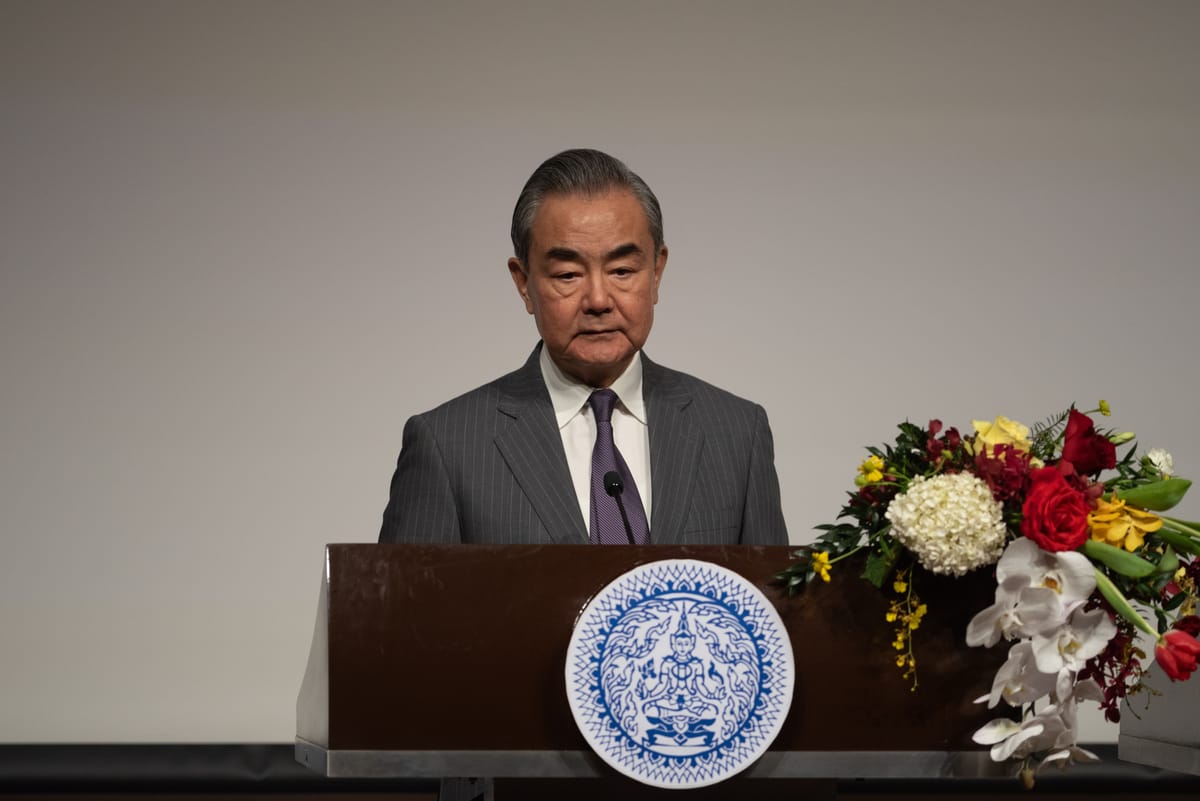Sullivan, Wang Fail to Make Breakthroughs on Middle East in Bangkok Meeting

The Lede: On Friday and Saturday, U.S. national security adviser Jake Sullivan met with Chinese foreign minister and top diplomat Wang Yi in Bangkok,Thailand. In talks that the officials noted were ‘candid’ and ‘substantive,’ the two upheld Washington and Beijing’s aim to maintain open lines of communication and meetings, but made little tangible progress on pressing geopolitical issues, especially concerns in the Middle East with the recent rise of Houthi attacks on commercial ships in the Red Sea.
What We Know:
- Washington signaled that Beijing should leverage its relationship with Iran to possibly disengage groups that it backs in the region. On Sunday, U.S. troops were killed and injured in a drone attack on a base in Jordan on the Syrian border, which was blamed on Iranian-linked militants. Earlier this month, two Navy SEALs were lost while on a mission to interdict Iranian weapons components that were heading to Yemen.
- The officials also made no progress on issues regarding North Korea, Russia, and Taiwan. In the case of Burma’s civil conflict, the two found areas of agreement and discussed follow-up engagement in the near future.
- The two sides discussed the next steps in planning a U.S.-China dialogue on the safe development of advanced artificial intelligence in the spring of this year. A working group on stopping drug trafficking will take place this week.
- The Chinese Foreign Ministry’s readout of the meeting made no specific mention of the Red Sea issue. It instead highlighted the move toward Taiwan independence as the ‘biggest challenge to China-U.S. relations.’ Meanwhile, the Chinese People’s Liberation Army (PLA) sent aircraft and navy vessels around Taiwan on the days of the meeting.
- Sullivan and Wang also met with Thailand’s Prime Minister Srettha Thavisin and Deputy Prime Minister Parnpree Bahiddha-nukara.
The Background: Sullivan and Wang met in Vienna and Malta last year, which helped to pave the way for U.S. President Joe Biden and Chinese President Xi Jinping to meet in November. The two leaders met on the sidelines of the Asia-Pacific Economic Cooperation (APEC) summit in San Francisco. They agreed to increase dialogue and communication between the two superpowers. U.S. officials have noted that there have been no aerial intercepts of U.S. spy planes by Chinese fighter jets in the South China Sea since the Biden-Xi meeting.
Likely Outcomes:
- With regard to the Red Sea, senior Houthi official Mohammed al-Bukhaiti told the press that Chinese vessels passing through the waters around Yemen would not be targeted in attacks. It may be the case that China-specific vessels can enjoy safe passage where other vessels are threatened. This would give China an edge in the volatility of the Red Sea shipping lanes and create an untenable imbalance for Western interests on the global market. In this case, the U.S. and its Western allies could possibly bring increasingly urgent and drastic measures on the table.
Quotables:
“China has influence over Tehran. They have influence in Iran. And they have the ability to have conversations with Iranian leaders that we can’t. We would welcome a constructive role by China, using the influence and the access that we know to try to help stem the flow of weapons and munitions to the Houthis.” - John Kirby, U.S. National Security Council spokesman
Good Reads:
US-China meetings fail to produce breakthrough on Red Sea shipping attacks (Politico)
US urges China to help deter Iran-backed Houthis in back-channel meeting (FT)
Xi-Biden call at center of China-U.S. talks in Bangkok (Nikkei)
China's Wang Yi and America's Sullivan to meet in Bangkok (Nikkei)
